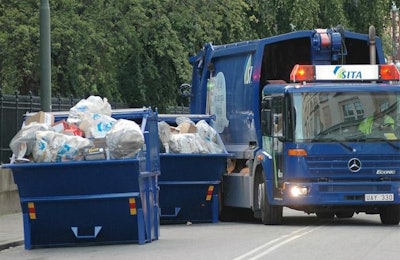
These are times in which generalized complaints predominate everywhere and in which there is a “no” to everything: no to caged hens, no to antibiotics, no to fast growing broilers, etc...
And meanwhile, big brands claim credit for someone else’s achievements: “From 2000-something onwards, our company will provide the consumer with only cage-free chicken eggs" or "we care about your health, and we only provide antibiotic-free chicken" or "our animals are 'organic,' and they do not have hormones and aren’t fed with rendering byproducts, either." Thus, they send the message of what should and should not be eaten.
After all these “nos,” I find that there is one that practically nobody boasts of implementing: no food waste. Why has no one done something to avoid food waste, a problem that does harm us?
According to the Food and Agriculture Organization of the United Nations (FAO), the global volume of food waste is estimated at 1.6 billion tons of primary product equivalents, and total food waste for the edible part of this amounts to 1.3 billion tons. In the same way, this wasted food is equivalent to 1.4 billion hectares: 28 percent of the world's arable land.
Has anyone seen hamburgers thrown to the garbage at fast food restaurants after they have not been sold in a certain amount of time? Yes, for the sake of safety. And the tons of food thrown away on cruises? And stored grains that are spoiled and bad political decisions and...
I am sure there is the technology to optimize the production of hamburgers – to give an example – and to prevent throwing away food in good condition. Predictions of bacterial growth, rapid detection of toxins, even more accurate predictions of consumption, among others. We have apps on our cell phones to optimize our time, we pass through toll booths with electronic readers, and there are devices that read the iris of our eyes for security reasons. Has anyone ever thought to make food preparation more efficient with new technologies?
Hopefully, someday we'll see some of these organizations pushing these new technologies and values, driving McDonald's or Starbucks not to waste, as they have done with cage-free eggs or antibiotic-free chicken. Hopefully, these companies will show-off, in their menus or in their advertising, that no food is wasted for the true benefit of the consumer. What do you think?


















